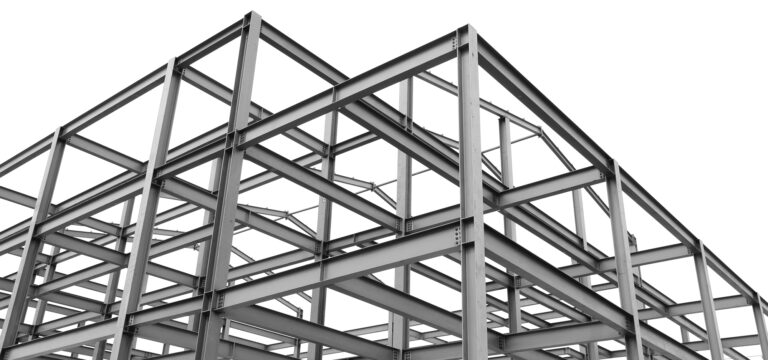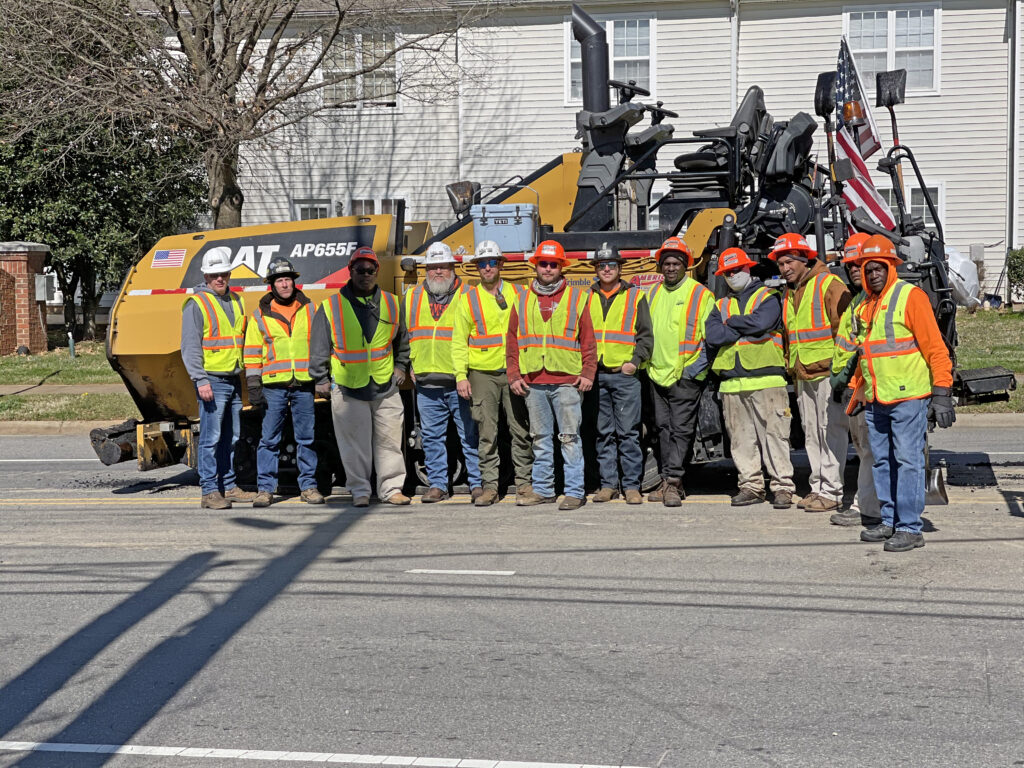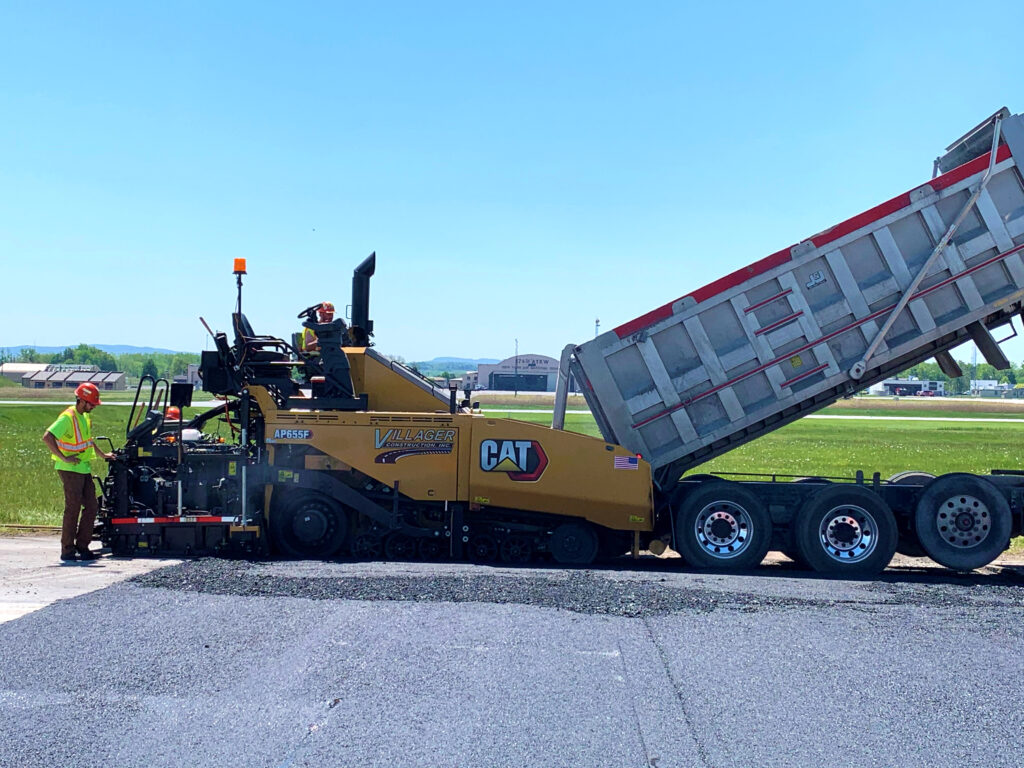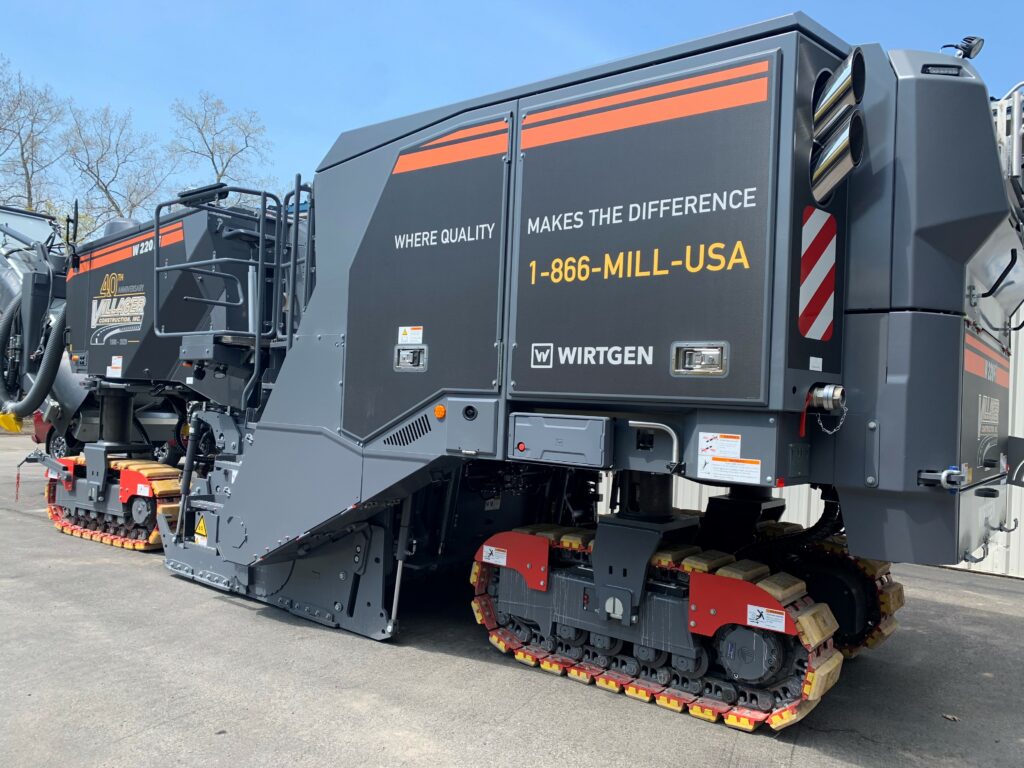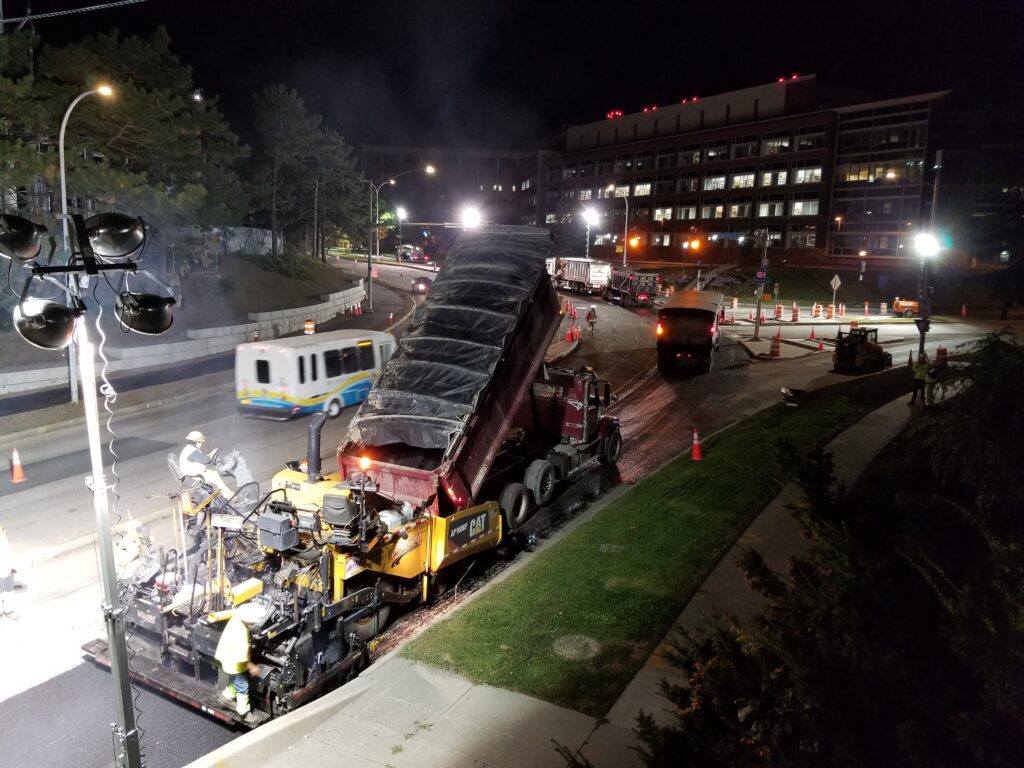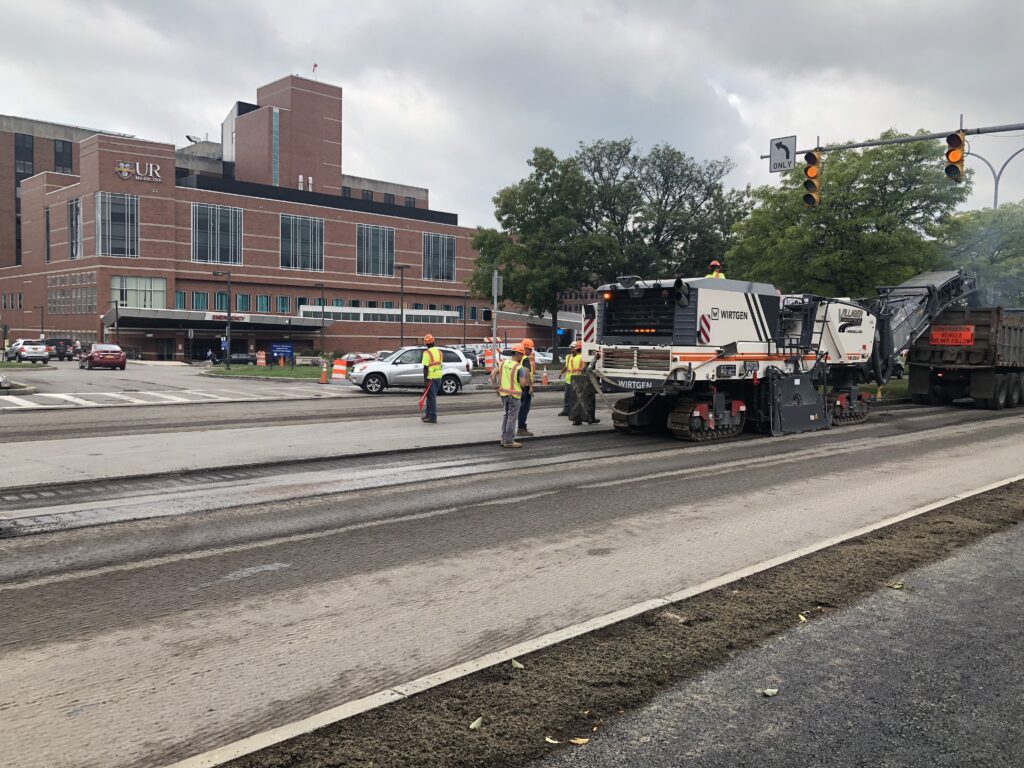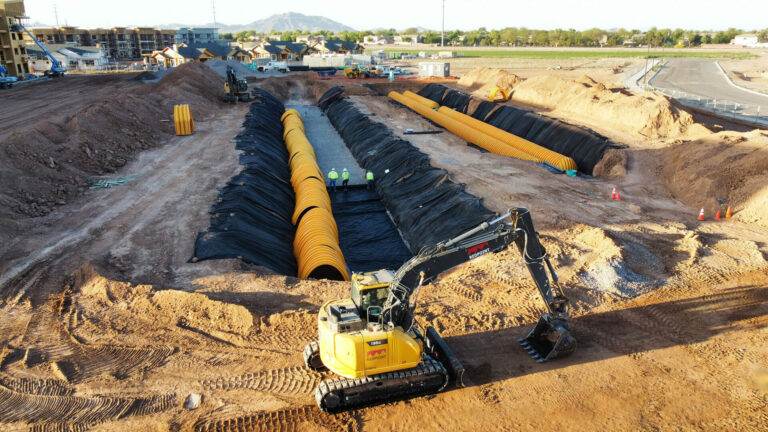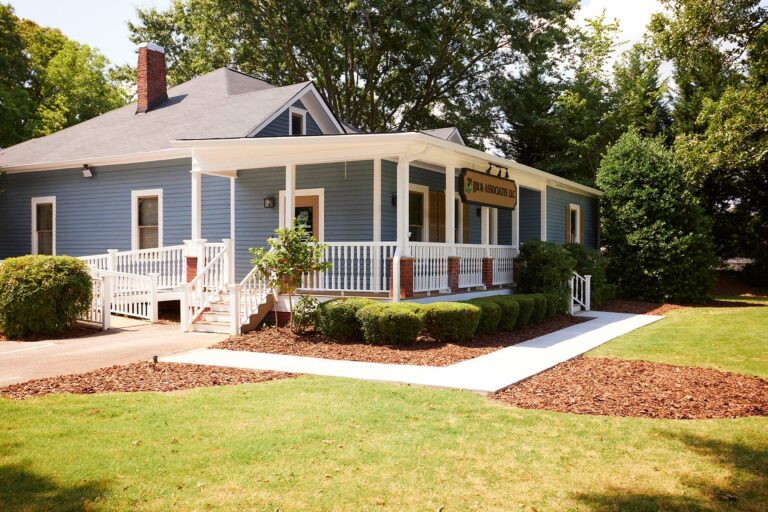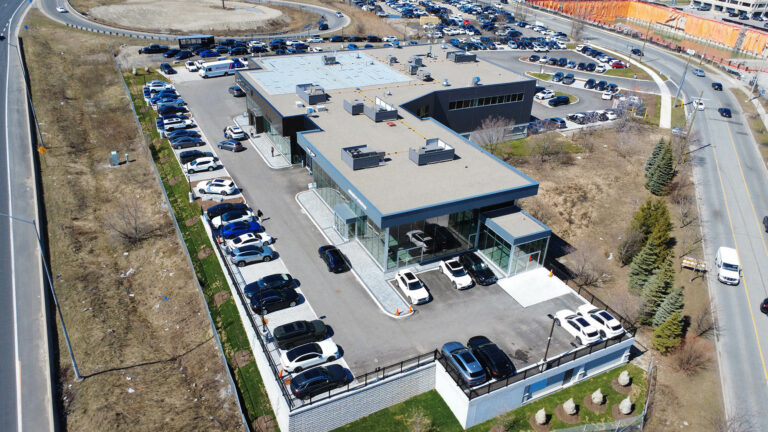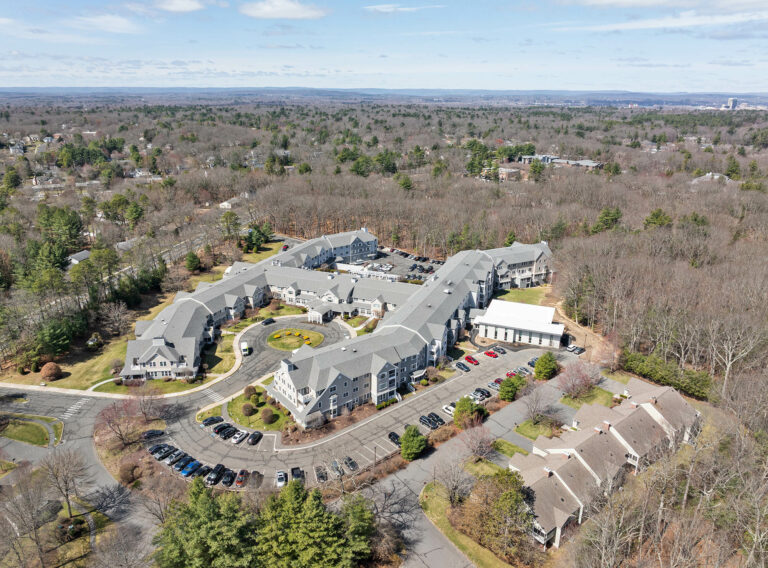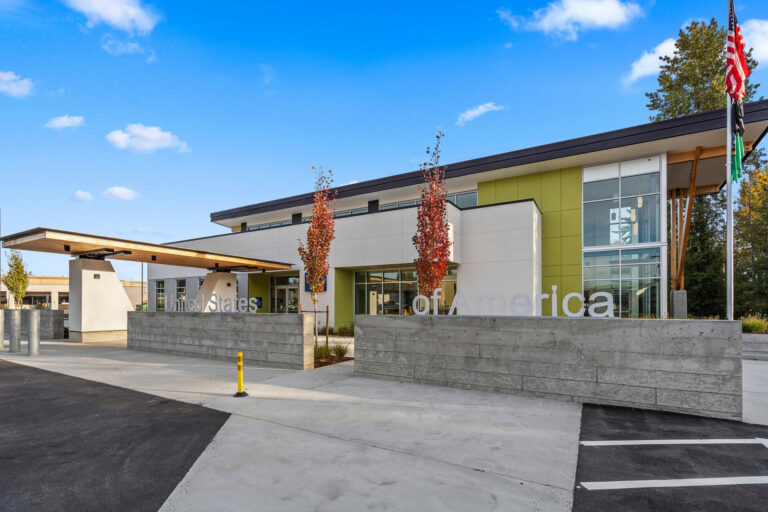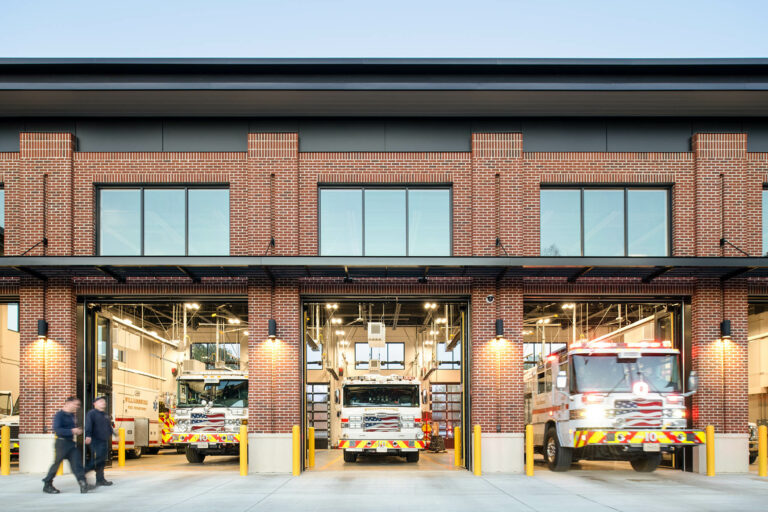Growth, diversification, collaboration. This is the order of business for Villager Construction, the New York based and multi-faceted construction company working up and down the East coast. Villager Construction was started in 1980 by Richard K. Clark who, prior to that, had been doing commercial work under the name Clark Excavation. Clark branched out into municipal and public bid work, and along with General Manager Skip Pike, they hired Timothy Lawless to help the company grow. Timothy is now the CEO of Villager Construction having bought the company from Clark in 2019, and today he takes time out of his busy schedule to talk me through the company’s journey from past to present. “When I came on board in 1992, we were doing mostly road reconstruction and utility water and sewer work in the Upstate New York area,” Timothy says. “There were about thirty to forty employees, and we were doing a couple million dollars a year. Shortly thereafter, with the help of General Manager Skip Pike and myself, we transformed the company into a larger firm and continued to grow almost exponentially in the public arena for the next ten years.”
The growth Tim speaks of came largely as a result of Villager Construction’s open-minded approach to changing industry demands. In 1997, when they recognized that road milling and profiling was set to become a bigger part of road construction, they got to work right away on making it a part of their portfolio. “We had a job that required road milling, so we rented a Caterpillar machine,” Tim says. “We started buying road milling machines soon after the success of that job, and that became our second line of work.” Villager Construction’s road milling department had been in existence for less than three years when they expanded it outside of New York and into the Carolina’s, building and rebuilding highways with some of the larger firms out there. “Today, twenty-five years later, we have a fleet of twenty-eight million machines that work up and down the East Coast.”
To capture the true extent of Villager Construction’s diversified portfolio Tim tells me that while one of his teams might be assisting in the reconstructing sixteen miles of road down the East Coast, another might be tending to an emergency call in the middle of the night for a water main or sewer line break. “This is because we’re on call 24/7 for the local municipals,” he says. Villager Construction continued to diversify into the early 2000s with the addition of their treatment plant work and paving departments, and such has been the Villager way ever since.
Around that same time Villager Construction picked up a job for the New York State DOT that required them to take out concrete sub-base, process it by way of crushing, and reuse that product back in the road. This was an era during which the talk of sustainability in the construction industry was a mere background noise compared to the roar that it is today, but even so Villager Construction had the foresight to recognize its potential. “We realized that like road milling, recycling and reusing materials coming out of the ground was going to become a larger part of the industry,” Tim says. “We purchased our first transportable crushing machine, then in 2009 our second and third. We continue to grow that line of business and follow the construction industry along the path of green.” To reuse rather than waste remains one of the most important principles of sustainability today, and one that Villager Construction are quite literally building into our infrastructure through their ever-evolving road construction department. Tim says that “it’s really exciting how we’ve taken straight up road construction and found different avenues to help us diversify and become what we are today.”
“We realized that like road milling, recycling and reusing materials coming out of the ground was going to become a larger part of the industry.”
Today Villager Construction continue to play an integral role in building the infrastructure of New York and beyond. They recently completed a section of the 490 interstate and it is this kind of project that brings about the sense of pride Tim and his employees find in their craft. “We milled and resurfaced six and a half miles of a major highway here in Rochester and will be doing an extension of that soon, the 590 project, heading North for another six miles of milling and paving.” Those who just use a city’s infrastructure allow things like smooth highways and clean running water to improve their daily lives without a second thought, while those who build it experience its benefits with a sense of pride and satisfaction that only they understand. “Helping to improve our roads and utilities is very satisfying and an accomplishment that everyone in our company is very proud of,” Tim says. “It’s exciting to drive down a road, feel the ride in your car, and know that your company had a part in making that happen. Or when you flush the toilet or take a shower and you have clean running water, you realize that that too is how our work comes together. To know that you’ve had a part in the infrastructure that keeps us healthy and safe – it’s a really neat feeling.” In this reflection Tim captures the true essence of what construction is all about – building something greater than what meets the eye and improving the lives of those who use it.
In today’s construction climate, with the shortage of qualified workers becoming a major headline, industry professionals are working against the clock to find innovate new ways to do business. Tim and his team recognize these workers shortages as an industry-wide rather than a company-wide problem, and as such have taken a collaborative approach in trying to solve them. Their paving department for example, which has expanded in typical Villager fashion over the years into North Carolina, is set up to support and build partnerships with the larger contractors down there. “The paving department continues to grow and be part of our footprint up and down the East Coast,” says Tim. “And when we can support some of the larger firms through the worker shortage and do some of the prep work, that’s pretty cool as well.”
This collaborative approach is also true of Villager Construction’s Logistics team, who have become a department of their own as a result of growing industry demands. “If we’re delivering something to one of our job sites and we can help one of our partners out by moving their equipment too – that’s what that department is all about.” It is this kind of attitude that transcends the competitiveness that often comes with doing business and replaces it with a sense of community that may be the very thing the construction industry needs to heal.
Villager Construction, as Tim describes it, is made up of a million different machines that work across all departments to get the job done, but the true brain behind the operation is, of course, its people. “All departments continue to find ways to grow, and the operations managers are key in making each one successful,” Tim says. “All of our employees contribute to the overall success of Villager Construction and I’m very proud of everyone who works here. We talk to our employees and let them know we’re proud, and we hope the travelling public can recognize their good work too.”
As they move forward into the future Villager Construction plan to continue along the tried and tested path that has led them to where they are today. That is, one that is rich in growth, diversification, and collaboration. They hope to continue to support the bigger firms with whom they’ve formed successful partnerships with, learning from them as they too continue to expand. “With the diminishing infrastructure that needs to be brought up to date there’s a lot of work to be done and we’re looking forward to doing it,” Tim says. “There are challenges along the way, but it’s about navigating those challenges and building a better future.”








